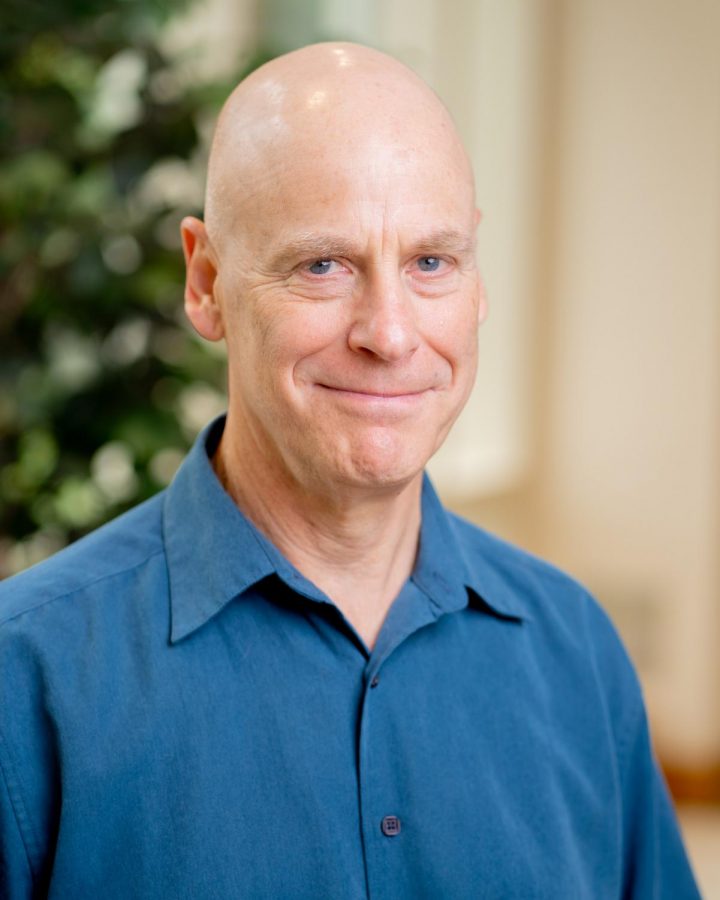From Experiencing History First-Hand to Teaching It in the Classroom
Professor of History and Peace and Conflict Studies Andrew (Andy) Rotter’s passion for U.S. diplomatic history derives from his interest in periods he has lived through as well as the responses he had to significant events he encountered at a young age.
“I remember being terribly frightened about nuclear war—not an irrational fear,” Rotter recalled. “During the Cuban Missile Crisis in October 1962, my fourth-grade classmates and I were told gravely by our teacher that it might become necessary for us to shelter in our hallway lockers.”
Not only does Rotter reminisce about the beginnings of the Cuban Missile Crisis, but he also affirms that the Vietnam War was a visceral, scary and divisive event that affected himself and his college classmates. While some of Rotter’s friends joined his university’s Reserve Officer Training Corps (ROTC) program, others awaited to get their names drafted in the war. For Rotter, he resolved to figure out what had gotten the United States into war in the first place.
“I’m still working on [figuring that one out],” Rotter said.
Rotter’s ongoing desire to learn about American foreign relations eventually transferred to a classroom setting, in which he has been teaching at Colgate University since 1988. During the spring semester of this year, Rotter led his third study group to London, England. According to Colgate’s Off-Campus Study website, “The London History Study Group allows students to pursue original historical research while enjoying the cultural resources of one of the world’s great cities.” While in London, Rotter taught a seminar about the British Empire and thirteen independent studies, through which his students are writing their theses on British history, the history of the United States, Africa, South Asia, Western and Eastern Europe and the Middle East.
Not only did history students spend the majority of their time researching various subjects, but they also engaged in cultural and historical trips around the United Kingdom. Rotter took the study group on three one-day trips: Cambridge, Bath and Stonehenge/Salisbury. However, due to the COVID-19 pandemic, their six-day visit to Belgium and France was canceled, as well as other future plans.
Rotter had to lead his students through a tenuous and uncertain time, as the coronavirus continued to spread throughout Europe and the rest of the world. Leaving London was a difficult decision, but Rotter explained that he had excellent guidance from Colgate’s Office of Off-Campus Study as well as from Associate Professor of English Gregory (Greg) Ames, who directed the English Study Group, on next steps. Since the situation was changing daily, Rotter shared whatever wisdom and judgment he had about the pandemic with his students.
“I wanted them to gauge their own anxiety, and especially that of their parents, which seemed to me the most important thing, and make decisions on that basis. The students were terrific: mature, practical and able to maintain a sense of humor, insofar as that was possible. Leaving was disappointing for all of us,” Rotter said.
Although his students’ theses involve archival work, Rotter made sure they were able to complete most of their research while in London.
“Several, at least, got most of their archival work done before they left. Others hadn’t yet solved the many mysteries of archival work. All made good faith efforts. Many will be able to use digital primary sources to fill out their research, and much of the work of writing a paper is…writing, which can be done anywhere. I’m reading rough drafts now,” Rotter said.
From witnessing the Cuban Missile Crisis and the Vietnam War first-hand, to teaching U.S. diplomatic history, to leading the 2020 History Study Group, Rotter has instilled a sense of hope and inspiration for Colgate students. When asked what he wanted people to take away when learning about history, Rotter admitted that he was not good with big questions. However, he revealed that history can help them to reflect on life.
“I hope they like doing history; I hope it makes them reflect with greater depth and humility on the present; I hope it makes them more interesting people,” Rotter concluded.








